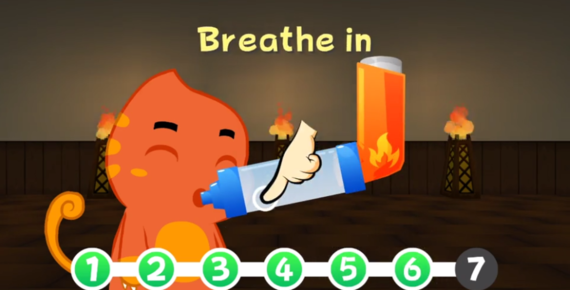Solving "real world" problems is one of the many possibilities that AOL founder Steve Case sees in the future of technology. In healthcare alone, we have Internet of Things devices that are pre-empting the onset of asthma attacks in children.
Not long after I wrote about KNOX, the company behind the asthma-monitoring device, another entrepreneur reached out about a company that seeks to apply consumer technology to healthcare - but across multiple areas and demographics.
When she was a Finance and Public Health student at Boston University, Nikita Virani took a class where she learnt one fact that defined her current career: that the biggest determinant of our health is not our healthcare systems, but our day-to-day behavior.
"Positive behavioral change is essential to better health, and building good habits require daily engagement." Nikita explained.
Given the ubiquity of smartphones, (as of 2015, ~68% of the population in the U.S. own smartphones), using them as a way to engage people seemed intuitive to Nikita. That idea sparked what would eventually became Wizdy, a post-seed health-oriented gaming startup that has launched two products so far: Wizdy Diner, a mobile game tackling food allergies; and Wizy Pets, which addresses asthma in children.
With asthma in particular, Nikita sees a big gap in patient education and advocacy that needs to be filled. As a condition that requires constant monitoring, taking care of asthma requires the diligent usage of inhalers (usually twice a day), which could become a burden for parents to supervise daily. Even in the clinic, doctors typically spend 10 - 15 minutes with the parents of children with asthma, rarely getting the chance to fully interact with and understand how children are engaging with the treatment.
Wizdy, the startup Nikita launched with her friend Sean Chung in Harvard's iLab, aims to fill that gap by developing mobile games that engage with patients, promote self-efficacy, and ultimately encourage behavioral change that leads to better health.
The games themselves provide a simple interface with colorful cartoons that mimic real life. For instance, Wizdy Pets, the asthma-centric game for children, features a fire-breathing dragon that "recharges" with a device that closely resembles an asthma inhaler. The thought behind the design, according to Nikita, not only aims to encourage diligent inhaler usage in children, but also serves to remove the stigma surrounding asthma treatment by making it part of a game that both asthma-inflicted children and those without the condition could play.
"We want players to have a stake in their own lives and work toward improving it," said Nikita.
Despite being in a historically difficult place to generate and sustain revenue, Nikita seems confidently unfazed, and has already been in talks for partnerships with insurance companies and pharmaceutical firms alike.
"For monetization, we're targeting businesses, but the end users are still consumers," she said, "our end goal is to help people take control of their own health.
Wizdy Diner, the allergy-centric game, has recently launched after development with and approval by allergists in Boston Children's Hospital and Harvard Vanguard. Wizy Diner and Wizy Pets are available now and free to download.
---
This piece was originally published on Breaking Hoops, a blog about innovators making a positive impact in the world. Sign up for the monthly newsletter here or like the Facebook page to stay up to date with the latest stories.

